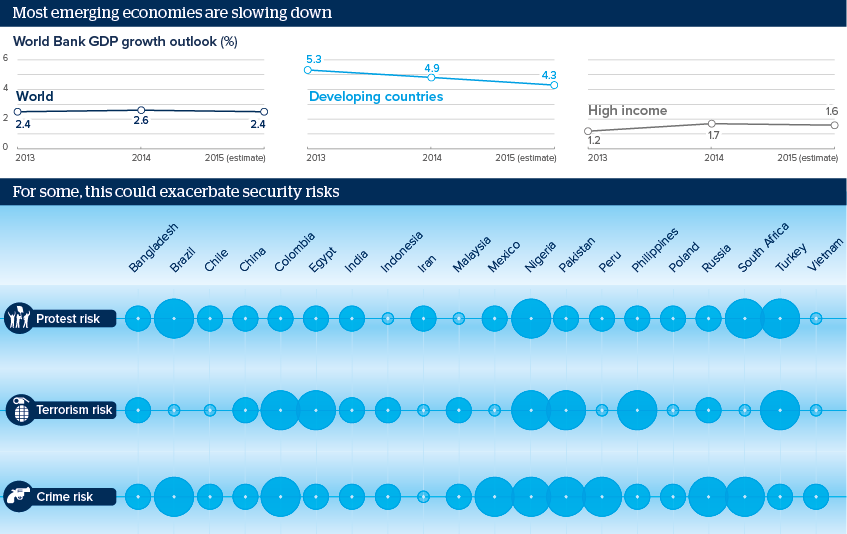Security risks may rise in emerging markets
2016 will be a crucial year for emerging economies struggling to adapt to slower growth

Source: World Bank Global Economic Prospects, Jan 2016, Oxford Analytica
Outlook
Falling commodity prices, China's slowdown and US Federal Reserve rate rises look set to provide forceful headwinds for the majority of emerging markets in 2016. Their governments are likely to struggle to adapt to more modest growth. Brazil, Malaysia, Nigeria, South Africa and Turkey are most at risk from rising debt costs, as their corporates issued much dollar-denominated debt.
Economic troubles are likely to aggravate security risks. Budget cuts could antagonise the population, undermine security forces and stoke sectarian tensions; protests may become more frequent and crime and corruption may worsen. Investors will need to anticipate emerging markets that are more volatile.
Impacts
- In China, layoffs in manufacturing, mining and construction will lead to worker protests, prompting a heavy crackdown.
- Fiscal consolidation will deepen the slump in India's domestic investment, just when foreign capital is also at risk of flight.
- Pakistan, like all oil importers, is benefitting from low energy costs, creating some scope for subsidy reform.
- Brazil faces a 'perfect storm' of political turmoil, global gloom and slumping domestic demand that limits prospects for recovery.
- Iran's internal security environment will remain insulated from regional tensions.
See also
- Prospects for emerging economies in 2016 - Nov 13, 2015
- More graphic analysis